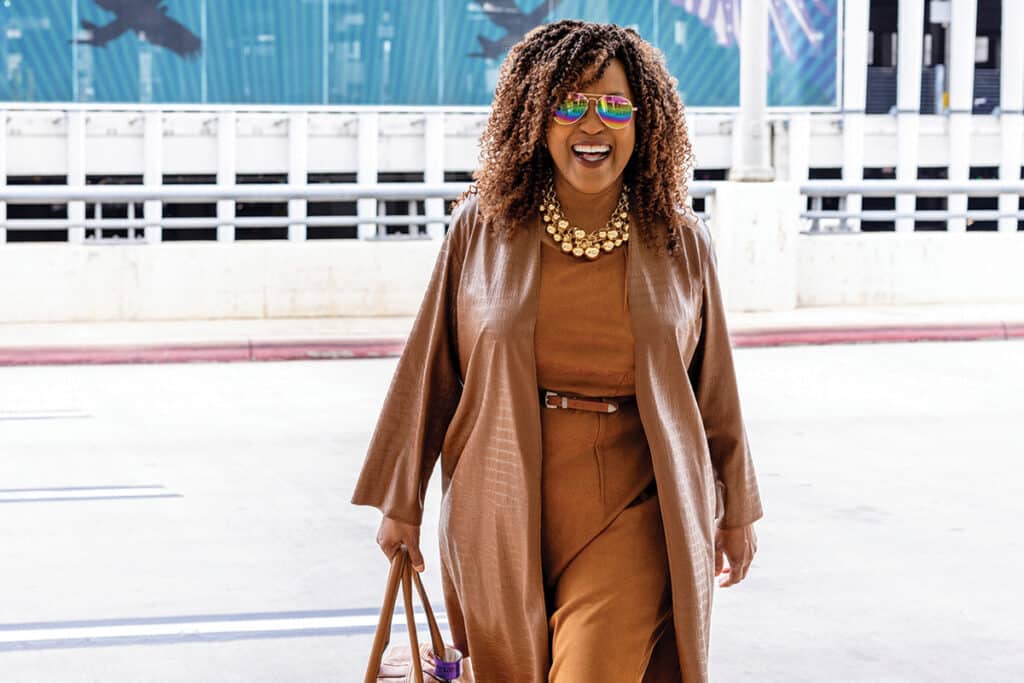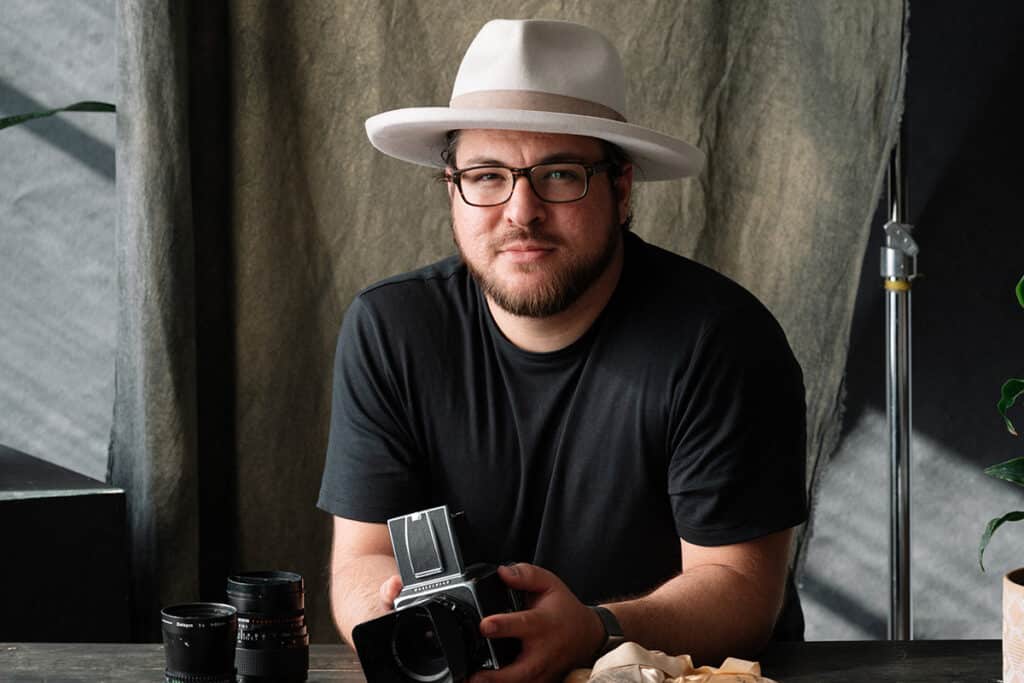Ana Maria Lecea, founder, presi-dent and CEO of Professional Performance Development Group, believes overcoming obstacles and turning them into opportunities is the world’s best confidence builder. And she is a very confident woman.
“Women have had to overcome tremendous obstacles on our journey to economic self-determination. Some of us faced them early in our childhood, others in adolescence and yet others as adults,” she says.
Lecea managed to touch all three of the aforementioned bases before finally building a company into a $11.3 million-a-year business with 475 employees providing medical, information technology and research services to the federal government in 34 states. Professional Performance also has contracts in Belgium, Germany and Mexico.
The company is the second-fastest-growing business in San Antonio ($25 million to $75 million in sales). It is: No. 37 of the 100 fastest-growing Hispanic businesses in the United States.
No. 19 of the top 50 high-tech Hispanic businesses in the United States.
No.134 of the 500 largest Hispanic businesses in the United States.
No. 41 in the top 50 privately owned San Antonio companies.
Third-largest woman-owned business in San Antonio.
Third-largest Hispanic-owned business in San Antonio.
Professional Performance also has been recognized in Working Woman Magazine’s regional awards for being the “Best Employer” and for “Overcoming Obstacles.”
Lecea’s first in a series of major confidence-builders occurred in 1955 at the tender age of 12. Her father, Argelio Lecea, relocated his family from their native Monterrey, Mexico. Lecea found herself in Flint, Mich., armed with English fluency that was limited to one sentence: “I do not speak English.”
Lecea recalls, “Everything was so different here in the United States. My father and mother spoke English, but none of us children did. Like so many immigrants, we had to overcome the cultural and language barriers, and, yes, a racial bias that was prevalent in so many communities of the time.”
The ’50s also were a time when the U.S. education system naively held that intelligence was quantifiable; you needed only to hand a student a multiple-choice booklet and a pencil to color in the little squares. “Life was orderly that way. Your score dictated your education path and therefore your future,” explains Lecea wryly. “One month after starting school, and with no explanation of this to my parents or to us, my brothers and I were given an IQ test.”
Her lack of English language skills forced Lecea to become keenly observant, consequently sharpening her learning skills and strengthening an invaluable ability to evaluate people. With no clue as to what was going on, Lecea picked up the pencil, as the other students did, and began filling in the squares. She blacked out the squares, not randomly, but in an attractive pattern pleasing to her artistic nature.
“I turned my pages when my neighbors turned theirs,” she says. “Sometimes I had to wait for them, because I finished my column faster than they did. I also learned to set my pencil down when the bell rang, if for no other reason than to avoid having the teacher yell at me and yank the pencil out of my hand.”
However creative her test-taking was, it was something less than a howling success. “I am sure that because of my attractive patterns, I earned the IQ score of a vegetable,” she recalls. “From that point until my junior year in high school, writing my name was considered an overachievement. Unfortunately, the test results supported the racial bias against Mexicans. I was placed in every art, home economics and remedial class available. It was most interesting to watch what was going on around me. I learned that these students were not expected to succeed, even in this watered-down education.”
Lecea knew she didn’t belong in the underachiever population, either in her mental development or in her belief in her ability to succeed.
Fortunately, in the beginning of her junior year in high school, an English teacher saw her potential and arranged for her to be tested (ah, those tests again!) Only this time it was determined that her intelligence, now freed from the language barrier, actually was well above average. She was elevated to the college preparatory curriculum.
She mastered the basic course curriculum in two years and one summer, despite the fact that her file still had a warning that she was not college material. She had to prove herself again and again to get her diploma, but despite the odds, she was off to college.
Lecea began job hunting while she was at the University of Michigan working on her Bachelor of Arts degree in secondary education. Potential employers welcomed her warmly — until it came to the question on the application form asking for country of birth. She noticed immediately that when she wrote “Mexico,” the welcome mat hastily was withdrawn.
“When I applied at the Vogue Dress Shop, I left that line blank,” she says. “Where were you born?” the shop owner asked. “Guess,” she responded.
The shop owner looked at her fair complexion and blonde hair, inherited from her father’s German grandmother and from his mother, who, incidentally, was born in Fredericksburg. He ignored Lecea’s brown eyes, handed down from her mother’s side of the family, because to him they didn’t fit the picture. “Sweden?” he guessed. “You’re a good guesser,” she answered.
She got the job and began selling and later modeling evening gowns for the shop.
Lecea married in 1967, the year she graduated from college. She taught for 10 years in Michigan and on St. Simons Island, Ga., where her husband was transferred in 1972. Her daughter, Kristina, was born in 1970 and her son, Klaus Michael, in 1973.
“Did I mention that my marriage was dead? Never one to give up, I stuck it out until 1981, when the divorce became final. In those years my obstacles were minor compared to those that awaited me,” Lecea says. “But when life closes doors, God always opens bigger doors.”
The depressed economy of St. Simons offered small opportunity to an ambitious young woman. Ever the artist, Lecea traveled from city to city selling her paintings to support her two young children and looking for a city in which to relocate. She chose San Antonio, although she knew no one in the city and had no obvious prospects.
She also made another life-changing decision. She opted not to return to teaching because her heart really wasn’t in it. While on St. Simons she had become friends with two business professors from Cornell University who were visiting the island. She had confided her desire to continue her education. They offered her the opportunity to study textbooks from publishers and to review them for suitability for the professors’ business curriculum. That was right up her alley.
“I did this for three years. I was quite blessed to receive a private education in business. By 1978, I made up my mind that I wanted to own my own business,” she says.
Lecea’s first job in San Antonio was with Royal Business Machines. She sold copiers, machines about which she knew absolutely nothing. She goes on to say, “It did not take me long to achieve first place in sales. What my co-workers did not understand was that I was a woman with a mission and a vision. I could outsell them, even in a territory no one else wanted. I received the coveted ‘Xerox Hunter Award’ for Texas because I replaced the most Xerox copiers with Royal copiers.”
After only a year with Royal, she moved to a position as general manager and marketing director for a small business owned by a psychologist who provided speed-reading and memory training. “He was an extremely bright man, but he had problems relating to people. I was bringing in the contracts, but he couldn’t relate to the customer, so the company was failing fast,” she recalls.
Lecea “fired” the psychologist for being disrespectful to his employees. “When I realized that an employee couldn’t fire the owner, I left,” she says.
On April 26, 1984, Lecea created Professional Performance Development Group. Without a road map, she went with what her reasoning told her. She believed she got all those contracts for her former employer because he was a male and a Ph.D. She got Dr. Paul Fisher, an Air Force Ph.D. stationed at Lackland AFB, to be program director and front man.
Then she negotiated a contract with Santa Rosa Medical Center to provide management consulting and staff development. She developed the curriculum and conducted the training. The future was bright until Fisher was transferred out of San Antonio. No male front man, no new contracts.
To make ends meet, she took a salaried job before returning to her dream. “Professional Performance’s offices were in our family room for five years. Poverty once again visited my home and made itself comfortable. We ate rice, beans and bagged chicken parts by the ton. Kristina made money for her clothes by making evening and prom dresses for the girls at her school. I would market medical form services and consulting services to the local hospitals,” Lecea says.
Klaus, even though he was only 14 years old, hired on at an ice cream shop and worked 28 hours a week, going to school and participating on the school swim team.
Women management consultants got a chilly welcome in the mid-’80s, but Lecea wrangled a contract at the Minority Development Center at the University of Texas at San Antonio. In 1989, three of her brothers lent her money to set up a business office because she couldn’t find a lending institution that would give her the time of day, much less a loan.
She entered a Small Business Administration program and was awarded a federal contract to provide dental assistant services to the clinics at Fort Sam Houston. With the $334,000 Fort Sam dental contract in hand, Lecea set out to find financing to meet the obligation. “I went to 15 banks. None would lend me the money,” she says.
The loan officers noted her excellent credit rating, then suggested they would give her a loan if her father or her brother would co-sign. She asked if perhaps her mother or her sister could co-sign. Of course not!
Texas Bank of Commerce was the 16th bank she called on. “There, I met Ed White, Jr., the loan officer. He was the first banker to treat me as a businesswoman, not a woman playing business. He saw my vision and helped me establish a $50,000 line of credit,” she remembers.
Today, Kristina has a master’s degree in finance and owns her own company. Klaus is Professional Performance’s vice president, security officer and information management officer, managing personnel from Alaska and Hawaii to California, Kansas and Louisiana.
Lecea’s mother, Ana Maria DeLecea, is her daughter’s strongest supporter and the company’s treasurer, a job she has held since the days when she worked for food — and brought her own food to work.
Lecea runs her company from offices in Plaza Lecea, a three-story, 45,000-square-foot medical office building she constructed and continues to develop on 6.49 acres at Eckert and Hamilton-Wolfe. A third-floor event center with curved glass walls offering a panoramic view of the countryside has weddings booked into 2007.
“At this point, I am sure some challenges still lie ahead. I am very happy to be living in America and in this age. We expect wonderful things for Professional Performance, Plaza Lecea and our employees and customers. Overcoming obstacles is the only way to succeed in any endeavor,” Lecea emphasizes.
Author: Loydean Thomas
Photographer: Liz Garza Williams




